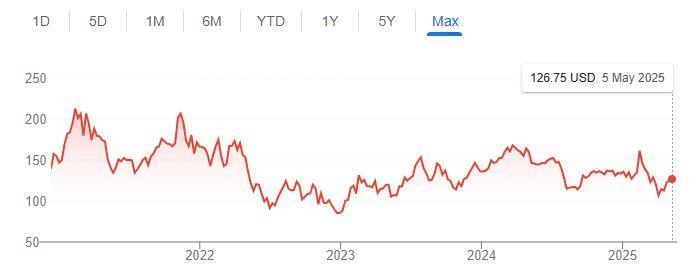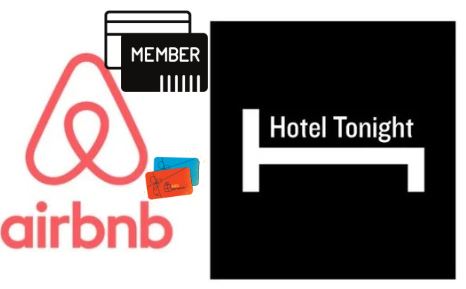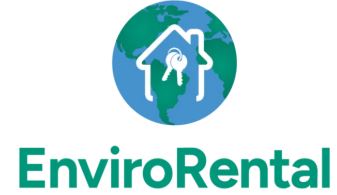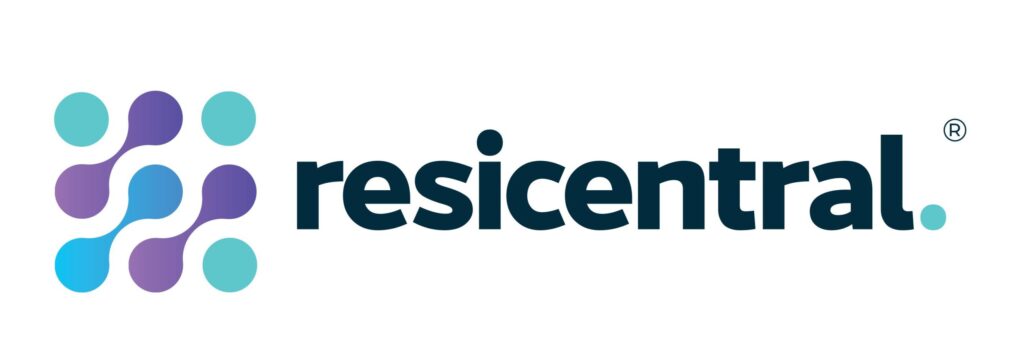There has been some big news, interesting developments, and another big report pending in the middle of this month. This time, it is on “Airbnb, its long-term intentions“, and how it needs to keep pushing hard on supply compliance.
If you want to receive a copy of this, please subscribe here.
Casago acquires Vacasa
Casago, the Phoenix-based vacation rental property management franchise company, has acquired Vacasa, a larger Portland-based competitor. Thousands of words have been written on this over the last months, and a competitive and higher bid was not considered in the best interests of investors. A few years ago, we were asked about Vacasa’s trajectory, and we thought it challenging to compete across such a broad market without a hyper-local, skin-in-the-game approach. Casago’s franchise business model offers this across a single-language marketplace, which is more challenging in Europe. We wish Steve Schwabb and the team all the best for the future, and we will be producing a bigger article on this subject in the coming months.
If you would like the new CEO’s take, this is an excellent interview, on Phocuswire, very briefly summarised below:

Steve Schwab emphasised integrating Vacasa’s resources while maintaining Casago’s commitment to personalised, locally empowered service. He highlighted plans to leverage the strengths of both companies to enhance service quality and operational efficiency. Looking ahead, Casago aims to continue its growth trajectory by focusing on community engagement and delivering exceptional experiences to homeowners and guests. The company plans to invest in technology and training to support its expanding network and uphold its standards of excellence. This acquisition positions Casago as a more formidable player in the vacation rental industry, combining scale with a commitment to quality and local expertise.
Airbnb and OTAS in General—Watch this! It sends a powerful message to all STRS, owners and managers alike!
This talk by Humphrey Bowles of Truvi is well worth watching for all who depend on or use OTAS and digital platforms. All STR education businesses and masterclasses should use it to build their businesses, not someone else’s! It’s an “Entrepreneurial Illusion”.
For a while now, we have been becoming increasingly concerned about OTA “intent” and increasingly so as both AI advances into the search and data analysis spectrum and the increasing need to improve shareholder values. There are only so many ways to do this, and all rely on supply compliance, forced or willing: Increase supply & demand. OTAS have some influence on destination demand, but driving traffic and eyeballs to their platforms is their skill with increasing disintermediation.
This month’s big article will be on Airbnb and its positioning as a “Host First” siloed platform. If you are not subscribed to the newsletter, click here.
Legislation continues to be a challenge.
We could spend several days illustrating the global challenge on housing, over tourism and local and national pushback. Last month, I mentioned a few US destinations; this week, two challenges closer to home.
Ireland: New research by the Economic and Social Research Institute (ESRI), funded by Ireland’s Department of Housing, reveals that two-thirds of Airbnb listings in Ireland are for entire properties, up from 56.4% in 2019 to 66.2% in 2023. The study analysed listings in September of 2019, 2022, and 2023 and found that total listings rose to 28,169 in 2023, with 18,638 entire homes and 9,531 private rooms. Listings are heavily concentrated in Dublin (which had the most listings overall) and popular western counties like Kerry, Donegal, Cork, Galway, Clare, and Mayo. Despite the growth in short-term lets, ESRI concludes that Airbnb is not the root cause of Ireland’s rental housing shortage. However, the research supports the Government’s move to introduce a national register of short-term lets, due by May 2026, as a necessary step to improve transparency, monitor local pressures, and inform housing policy. Full Report Here
When you think the government can’t do more to reduce tourism, it introduces yet another regulation. If FHL, capital allowances, local rate increases, increased minimum days let, etc., aren’t enough, it introduces energy conservation rules, which follow the green trail. But our UK heritage goes back hundreds of years, and two-foot-thick granite walls and ancient, listed buildings often used for holiday homes are included!
UK: As of May 2025, the UK government is advancing plans to improve energy efficiency in rental properties—including holiday lets—by requiring all such properties to achieve a minimum Energy Performance Certificate (EPC) rating of Band C by 2030, up from the current minimum of Band E.
The new rules will apply to short-term and holiday rentals regardless of how long they are let or who pays the bills. They will include a proposed £15,000 cap on upgrade costs, with a ten-year exemption available if compliance isn’t achievable within that limit. Additionally, starting in 2026, the EPC assessment method will focus more on how well properties retain heat, potentially altering what upgrades are needed to meet the new standard. Sign up to the UK’s Professional Association for homeowners and managers (PASCUK) for reliable updates and to fight your corner.
Florence, Italy: The Mayor Sara Funaro and Tourism Councillor Jacopo Vicini have introduced new regulations for short-term rentals effective from 2025, including a ban on renting apartments smaller than 28 square metres, and fines ranging from €1,000 to €10,000 for violations. The rules mandate multilingual guidelines for waste disposal, quiet conduct, cleanliness, environmental responsibility, and the correct use of public transport, parking, and traffic zones. Safety requirements include mandatory detectors for combustible gases and carbon monoxide, and accessible fire extinguishers placed strategically every 200 square metres. Accommodation standards specify minimum sizes—single rooms at least nine sq metres, double rooms 14 sq metres, kitchens nine sq metres, separate cooking areas between 4-9 sq metres, and bathrooms at least 2.5 sq metres wide. Enforcement will intensify with a dedicated police task force. At the same time, additional strategic initiatives include reaffirming rental bans in UNESCO-protected zones and collaborating with the University of Rome La Sapienza to analyse and manage tourist rental impacts city-wide.
Communication SnapShot

Hosthub introduced a preview of their research project, which analysed over one million anonymous guest messages from hosts to manage communications across Airbnb and Booking.com.
Category Percentage. The analysis revealed patterns in guest communications. Here’s a snapshot of where problems most frequently occur.
– Booking/Pricing 34.87%
– Check-in/out 14.89%
– Bathroom 8.78%
– Accuracy 8.35%
– Appliances 6.36%
A little surprising on the top two in terms of percentage differences. Communication is one of the essential foundations of a successful business. Download the whitepaper here.
Smart Management ~ Franchise Again!
This is worth a few words in an industry overwhelmed by multiple touchpoints and challenges at both the tech and management levels. Read on and consider your position in your own business. Does it make sense to rethink your strategy, refocus?

Casiola Takes Over Management of DesignedVR’s Luxury Florida Portfolio
Luxury vacation rental manager DesignedVR has transitioned the daily operations of its 100-property portfolio in South Florida to expert property management company Casiola Vacation Homes. This move integrates DesignedVR’s homes into the Casiola network, significantly expanding its presence in Southeast Florida and the Tampa Bay area, and strengthening its existing operations in Miami, Orlando, and Clearwater. The expanded footprint stretches from Sunny Isles Beach to West Palm Beach and throughout the greater Tampa region.
Designedvr founder Shahar Goldboim, who also serves as co-founder and CEO of Boom, the world’s first AI-driven property management system (AIPMS) for vacation rentals (Boom), has stepped away from his property management company to focus entirely on scaling the tech firm. “Vacation rentals are a people business, and Casiola’s team is full of committed, smart, and smiling people who consistently work to improve the guest experience,” said Goldboim. “I have full confidence in handing over the unique, high-end properties we’ve built at Designedvr so I can focus on putting AI at the centre of short-term rental operations with Boom.”
AI
This month’s mentions are powerful; the first comes from OTAS and an Amazon AWS report.
During the firm’s first-quarter conference call on Thursday, Airbnb CEO Brian Chesky said it started rolling out an AI-powered customer service bot in the U.S. in April. He said 50% of Airbnb’s U.S. users are already using the AI bot for customer service, adding that the company plans to roll out the feature to all its users in the country this month.

“One thing I’ll say about AI [is that] it is making the customer experience easier […] It has already led to a 15% reduction in people needing to contact live human agents,” he noted during the analyst call.
Vacation rental search is evolving with AI-powered tools. HomeToGo now offers an AI Filter that lets travellers describe their ideal stay in plain language. Kayak’s new features—including “Ask Kayak” and PriceCheck—help users compare prices and even analyse screenshots for deals. These innovations mark a shift toward more intuitive, conversational bookings.
Don’t get left behind: For example, the adoption of AI is rapidly accelerating across the UK, with more than half (52%) of businesses now using AI and at least one business embracing the technology on average every 60 seconds, according to the latest edition of Amazon Web Services (AWS) “Unlocking the UK’s AI Potential” report.
AI adoption has grown by 33% in the past year, outpacing the European average (27%) and the uptake of other transformative technologies, such as mobile phones, during the early 2000s. Now, more than half (52%) of UK businesses are using AI, up from 39% last year, with the vast majority (92%) of businesses adopting AI reporting increased revenue. Over half (55%) of large enterprises reported consistently using the technology, up from 41% last year. However, their use of AI remains surface-level, meaning they are focused on basic efficiency gains.
Optimising Content for the AI Era: A Succinct Guide (from a Google AI)
As Google still dominates search and is advancing very quickly on its own LLM, we thought we would ask for advice on how best to position your business to surface in an overwhelming world. This is what Google says:
The way users discover information is evolving with the rise of AI. While traditional search engines like Google employ sophisticated crawling, rendering, and indexing that understand JavaScript, schema, and link signals, many current AI models primarily process raw text. This shift requires adapting your content strategy. Here’s how to optimise your web content for better visibility in AI systems, alongside traditional search:
Above all, focus on creating authoritative, accurate, and valuable content that directly addresses user needs. This is the foundation for success in both traditional and AI-driven discovery.

Strategic Adjustments for AI Visibility (written by Google AI, of course)
- Prioritise Raw Text Readability: Many AI crawlers primarily see the raw HTML. Ensure your core content, including key information and calls to action, is easily accessible in the initial HTML without heavy reliance on JavaScript rendering. Consider technical solutions like pre-rendering if dynamic content is essential for the user experience.
- Structure for Direct Answers: AI excels at providing concise answers. Organise your content with clear headings and consider prominent FAQ sections that use natural, conversational language to answer likely user queries. This makes your content highly digestible for AI summarisation.
- Embed Your Brand Naturally: Since AI outputs may not always link directly or attribute in the traditional sense, weave your brand name and unique value propositions naturally into your content. Describe your offerings and expertise using branded sentences where appropriate.
- Clarity and Directness are Paramount: Write clearly and get straight to the point. Use simple language, bullet points, and lists to make information easy for users and AI to process and understand.
- Maintain Traditional SEO Hygiene: Do not abandon your existing SEO efforts. Technical optimisation, mobile-friendliness, site speed, and a logical site structure remain crucial for Google Search and contribute to overall web accessibility, which can still indirectly benefit AI processing. Continue to use schema markup; while not always fully utilised by current AI, it remains valuable for traditional search and is likely to gain importance in future AI systems (e.g., with RAG).
- Monitor and Adapt: The AI landscape is dynamic. Stay aware of how AI systems evolve in crawling, indexing, and presenting information. While direct measurement tools are emerging, regularly test how your brand and content appear in responses from different AI platforms and be prepared to adjust your strategy.
In essence, success in the AI era means refining your content to be exceptionally clear, directly answering user questions within the text, ensuring it’s easily readable by less sophisticated crawlers, and integrating your brand effectively, all while maintaining strong traditional SEO practices. Be prepared to learn and adapt as AI technology continues to advance.
Airbnb
Off-Platform and Fee Transparency Policy Update
Starting May 10, Airbnb will enforce an updated Off-Platform and Fee Transparency Policy. This change prohibits hosts from collecting payments outside of the platform and bans the use of third-party guest registration systems. Hosts can no longer ask guests to register on external sites or download third-party apps. Under the new policy, all mandatory fees—including cleaning, pet, and resort charges—must be disclosed and included in Airbnb’s pricing fields when booking. This aims to increase transparency and reduce guest complaints about hidden costs.
1st Qrt Results:
Airbnb has forecast slower booking growth for the second quarter of 2025 due to ongoing economic uncertainties in the U.S., including inflation and trade tensions, which are making lower-income travellers more cautious. Airbnb’s core business – guests staying in short-term rentals – grew less than 10% in 2024 and 8% in the first quarter this year, and in Q1, Airbnb reported $2.27 billion in revenue.
Despite this, Airbnb maintains its full-year profit margin outlook, expecting adjusted EBITDA margins of at least 34.5%. For Q2, Airbnb projects revenue between $2.99 and $3.05 billion. The company expects EBITDA to increase year over year but warns that margins could be flat or slightly down due to increased marketing and investment ahead of summer product launches. Airbnb needs to do something to push its share price northwards. More of the same is not enough!

Airbnb plans to invest $200–$250 million in launching and scaling new business lines in 2025. Quote “Airbnb also plans to invest in its relaunched Experiences business as a growth driver. “On May 13, Airbnb will go beyond places to stay,”. The experiences sector is the next hot topic (again) and is worth a deep dive on our six-weekly, big analysis posts. There is also commentary on hotels from Chesky, perhaps being given more space on Airbnb to advertise.
Let’s see how managers and tech-connected businesses like all this!
STRS TAKE NOTE: Booking.com ~ Power at scale.
Hoteliers across the EU are preparing class actions against Booking.com, accusing the platform of abusing its dominant market position despite a ruling by the Court of Justice of the European Union. At the heart of the dispute is the long-standing “rate parity” clause, which previously barred hotels from offering better prices on their websites than on Booking.com. Although this clause has officially been dropped, hoteliers claim the platform still uses its dominance to restrict competitive pricing.
Legal actions are coordinated in multiple EU countries, and the issue will be discussed at HOTREC’s general assembly in Oslo. Hoteliers argue they should be free to offer discounts below the platform’s high commission rates (often 15% or more) and still come out ahead. The shift toward digital transformation in the hotel industry has enabled more properties to build their booking platforms, reducing reliance on intermediaries like Booking.com and Expedia.
Loyalty Programs are all the rage!
But all is not as planned for some. Beginning May 22, 2025, VRBO will reduce One Key rewards for travellers: Blue-tier members will no longer earn any OneKeyCash on VRBO bookings. Silver-tier members earn just 1%, compared to 2% across Expedia and Hotels.com. This change affects VRBO US and UK and may lead reward-conscious travellers to favour Expedia or Hotels.com when booking short-term rentals. This could impact booking distribution for short-term rental managers, particularly for properties syndicated across Expedia Group platforms. VRBO-only listings may become less competitive among loyalty-focused guests, prompting potential shifts in guest behaviour and platform performance.
Expedia hasn’t explained the change, but possible reasons include reducing reward costs for infrequent, high-value VRBO bookings, encouraging use of multi-service platforms (where upsells are easier), or internal strategic rebalancing within the group.
In the meantime, we are waiting for the success of HotelTonight and the Airbnb loyalty program.

Why does the industry not have a global loyalty program of its own? Saving $20 on a $ booking and paying 15% too much doesn’t make good economic sense!
Environmental: (From Booking.com) & Envirorental
A recent report by Booking “dot” com on travel awareness by residents of tourism impact is interesting to say the least:
Almost half (48%) of travellers feel tourism levels in their hometowns are appropriate, though they note common issues like traffic congestion (38%), littering (35%), overcrowding (30%), and rising living costs (29%). Rather than restricting tourist numbers (only 16% favour this), residents prefer investments in improved transport (38%), waste management (37%), and environmental conservation (32%). Over half of travellers view tourists positively, noting they usually respect local traditions (53%) and support local businesses (54%), reflecting travellers’ desires to contribute financially to local communities (73%) and experience authentic local culture (77%).

The Envirorental website publishes a complete breakdown and valuable opinions on the environmental and sustainability challenges and options.
ResiCentral is helping the planet and your energy bills!
With the increase in costs, the rising temperatures, the uncertainty of winter climate and the fact that guests seldom take much notice of your energy costs, we thought a product feature would be helpful and illustrate the benefits many are getting from smart tech and forward-thinking companies:

Case Study (Full report here)
Lovat Parks, known for luxury holiday experiences in eco-friendly UK locations, partnered with Resicentral to enhance sustainability by reducing energy consumption, particularly gas usage for heating and hot water. Rising energy consumption during peak occupancy and colder months was a real problem. The big question was how to reduce the need to reduce gas and electricity usage without negatively impacting guest comfort. The solution was to install the Resicentral Smart Energy Management Systems at Lovat Parks’ Padstow Village site.
This technology includes occupancy detection for efficient heating, hot water, and lighting management, real-time monitoring, and automated control based on occupancy and external temperatures.
Results:-
- Colder Months (Mid-September–Mid-November): Gas savings increased to 33%, demonstrating greater efficiency during colder periods.
- Summer Period (June–August): 25% reduction in gas consumption due to smart adjustments when caravans were unoccupied.
- Electricity consumption was reduced by 15% through optimised lighting and automation.
Overall Impact – Average gas consumption reduction of 29%.
Testimonial
Jo Palmer from Lovat Parks expressed satisfaction, highlighting substantial savings achieved and anticipation for even greater winter reductions, leading to the expansion of this technology across their sites.
Conclusion
No need to write this, the numbers speak for themselves!
READ MORE – WHITE PAPER – Energy Savings and Why Prop Tech is Key
M&A
Apart from Casago’s blockbuster announcement that it would finalise the acquisition of Vacasa, Munich-based vacation rental company Holidu acquired Finca Mallorca, a vacation rental booking platform founded in Cologne, Germany, in 1994. Holidu has had an office in Mallorca since 2016 and manages around 3,000 rentals in the Balearic Islands. This acquisition follows Holidu’s previous acquisitions of Ferienwohnungen.de and Clubrural last year.
Under the acquisition, Finca Mallorca’s listings will remain on its site and be added to Holidu’s and 27 partner sites. Holidu highlights benefits for hosts, including instant online bookability, management software, local support (like professional photoshoots), a central booking calendar, payment processing, and automated guest registration.
More opportunities to get bookings on another platform, but don’t forget the video above!
What Is a Good ROI on a Short-Term Rental Property?

The world has moved from second home ownership and long-term capital growth with some face-washing to a whole real estate property business with heavily refined metrics and tools/advice to help rentalpreneurs and managers alike. AirDNA has an excellent article and US data to support its narrative. Worth a read for those embarking on or have embarked on this journey!
- A 10% yield is a good ROI for your short-term rental, but you should also consider other metrics—like cap rate, NOI, and cash-on-cash return—to get the full picture of performance.
- Occupancy, pricing trends, seasonality, regulations—even the neighbourhood you’re in—all affect how much you take home. A great deal on paper isn’t always a great deal in practice.
- A “good” ROI depends on your investing style—whether you prefer steady and low-maintenance or higher-risk with bigger upside.
Sign up for the Yes Consulting newsletter and the more lengthy single-subject reports. The next one is Airbnb, and what they don’t want you to know, managers in particular!

